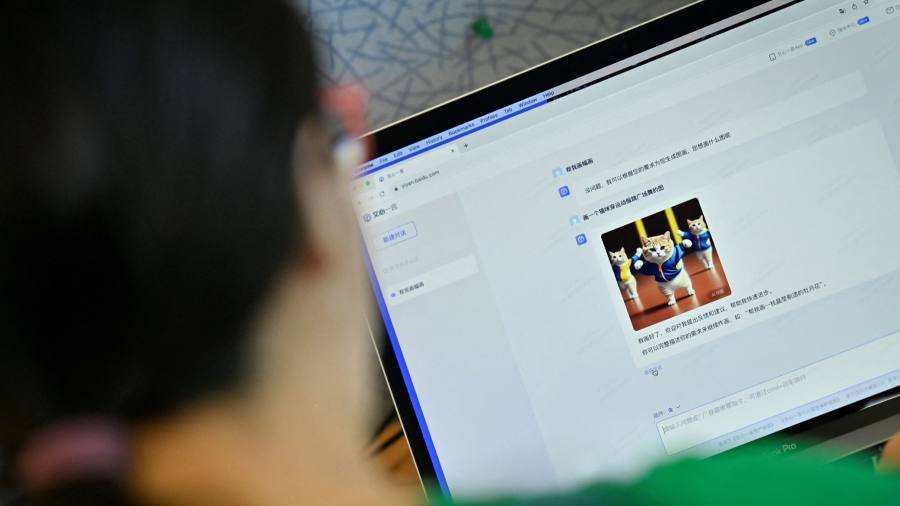
Receive free Artificial intelligence updates
We’ll send you a myFT Daily Digest email rounding up the latest Artificial intelligence news every morning.
Chinese technology groups Baidu and ByteDance launched their artificial intelligence chatbots to the public on Thursday after receiving regulatory approval from Beijing.
A handful of AI start-ups also had their services greenlit for the public, in a development expected to help the companies improve their models and commercialise the technology as they race to deliver China’s answer to Microsoft’s OpenAI.
Baidu’s Ernie had previously only been available to a limited pool of users that signed up to test the chatbot. But from Thursday, everyone with a Chinese phone number can access the free chatbot, which Baidu has said will remake its business and bolster advertising revenue.
Baidu founder and chief executive Robin Li on Thursday said the public rollout meant “Baidu will collect massive valuable real-world human feedback” to make the chatbot work at a “much faster pace”.
ByteDance, which has numerous small teams working on various generative AI products, launched its Doubao chatbot. Chinese surveillance group SenseTime and Meituan-backed AI start-up Zhipu also launched their chatbots. Shares in Baidu rose 2 per cent, while SenseTime shares rose 3.3 per cent.
Beijing’s approvals come as US groups such as Microsoft and Google continue to make strides in developing the technology. GPT-4, OpenAI’s latest version of its popular chatbot, accepts images and text as inputs and allows users to ask questions about pictures.
“China is under pressure to make these models public. Every day they are not open to the public, they are losing out to the US companies,” said Boris Van, tech analyst at Bernstein.
“The US companies keep building new versions of the models and pushing forward their algorithms. This can only take place if a lot of people are using the models,” he added.
Beijing has required tech groups to seek approval before launching generative AI services to the public in order to control the content disseminated by the chatbots.
The Cyberspace Administration of China, the country’s powerful internet regulator, has previously said content “should embody core socialist values and must not contain any content that subverts state power, advocates the overthrow of the socialist system, incites splitting the country or undermines national unity”.
The United Arab Emirates has also joined the rush to compete in the burgeoning AI chatbot field.
On Wednesday, an AI group with links to Abu Dhabi’s ruling family launched what it described as the world’s highest-quality Arabic AI software.